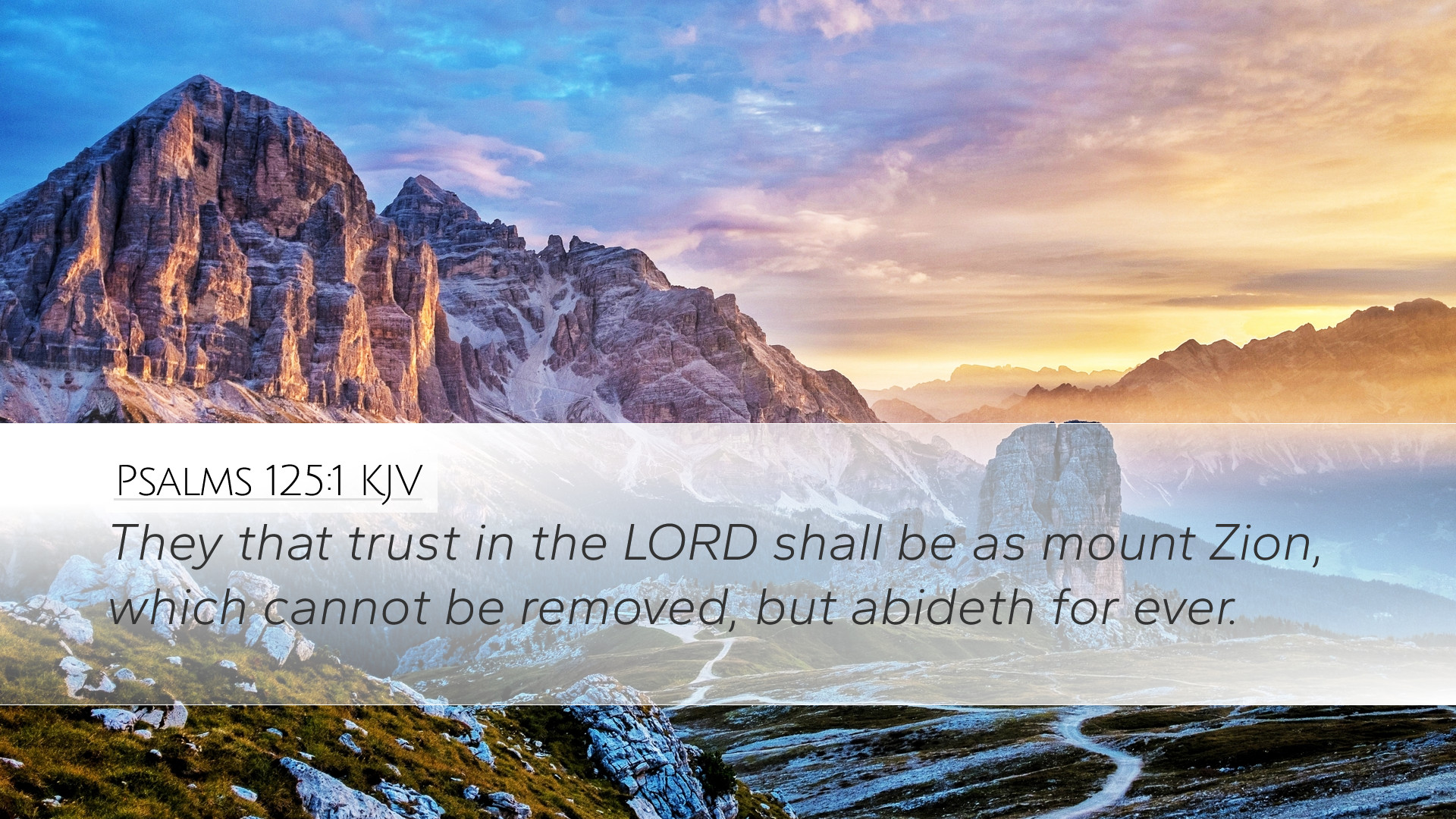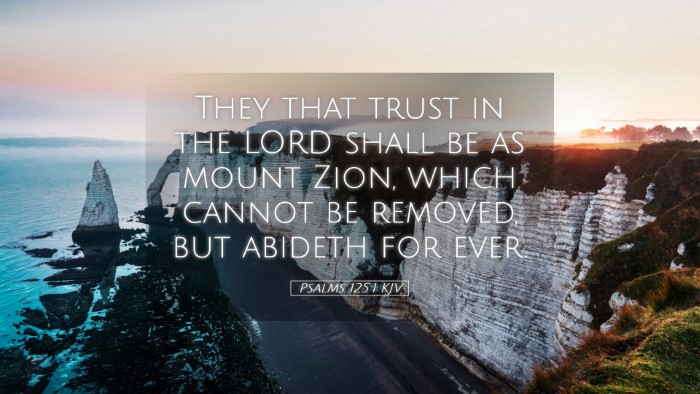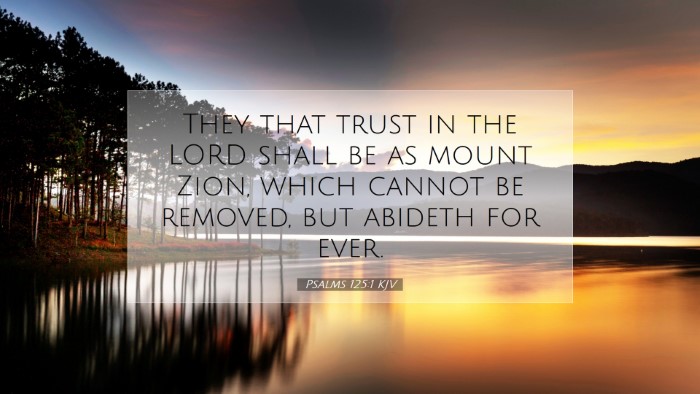Psalms 125:1 - Commentary and Insights
Verse Text: "They that trust in the LORD shall be as mount Zion, which cannot be removed, but abideth forever."
Introduction
Psalms 125:1 stands as a profound declaration of the steadfastness and security that accompanies trust in the LORD. This verse encapsulates the essence of faith, drawing a vivid picture of Mount Zion, a symbol of God's presence and unshakeable promise.
This commentary seeks to weave insights from prominent public domain commentaries, providing a comprehensive discussion that matters to pastors, students, theologians, and Bible scholars.
Trusting in the LORD
The phrase "They that trust in the LORD" introduces the key theme of this verse. According to Matthew Henry, this trust signifies a deep-seated confidence in God that goes beyond mere belief; it involves reliance upon His character and covenant promises.
Albert Barnes adds that this trust is not passive but involves active engagement in faith, which prompts believers to lean on God's providence regardless of circumstances. This foundation forms the bedrock of a believer's life amidst life's turmoil.
The Symbolism of Mount Zion
Mount Zion serves as a powerful metaphor throughout Scripture. As noted by Adam Clarke, Zion represents the place of divine favor and security, where God's people experience His presence. The mention of Zion in this context conveys profound implications:
- Stability: Just as Mount Zion is unshakeable, so too is the condition of those who put their trust in the LORD. They are immovable, grounded in faith.
- Divine Protection: Mount Zion is often associated with God’s protection. This indicates that those who trust in God will find refuge under His wings, symbolizing safety and care.
- Eternal Significance: The enduring nature of Zion emphasizes the everlasting covenant God has with His people. As Matthew Henry explains, this alludes to the permanence of God's kingdom and the promise of eternal life to believers.
The Assurance of Permanence
The latter part of the verse, "which cannot be removed, but abideth forever," underscores the certainty and permanence associated with God's kingdom. Albert Barnes highlights that this assurance is not contingent on earthly circumstances, reiterating that God's sovereignty ensures that His people will endure trials and triumph over adversity.
Matthew Henry remarks that although the world may shift and change, the foundation of faith—anchored in God—remains unyielding. This eternal aspect is crucial for believers to understand, providing hope even in the face of overwhelming difficulties.
Faith Amidst Adversity
Psalms 125:1 offers solace to those facing challenges. Adam Clarke reminds us that trust in the LORD invokes a sense of peace and stability, especially during turbulent times. This verse serves as an invitation to believers to remain steadfast, displaying an unwavering spirit even when external circumstances fluctuate.
Matthew Henry emphasizes that this resilience is a direct result of genuine faith – the ability to stand firm, akin to Zion, in moments of trial reflects the depth of one’s trust in God. As such, this passage encourages believers to cultivate a reliance on divine strength and encouragement.
Conclusion
In summary, Psalms 125:1 beautifully encapsulates the essence of trusting in the LORD and the stability that comes with it. Through the metaphor of Mount Zion, this verse paints a picture of security, permanence, and divine protection for those who place their hope in God.
Pastors, students, theologians, and Bible scholars can glean profound truths from this passage that challenge and inspire them to deepen their reliance on God. Ultimately, as we trust in the LORD, we become like Mount Zion—unshakeable and abiding forever in His presence and provision.


